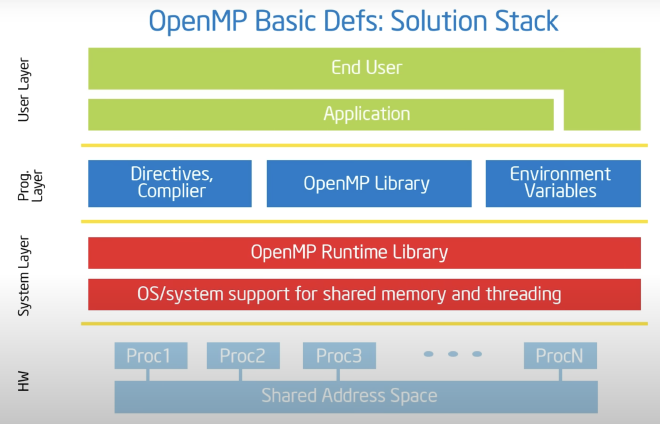Basic Concepts#
Concurrency vs Parallelism#
Concurrency: A condition of a system in which multiple tasks are logically active at one time.
Parallelism: A condition of a system in which multiple tasks are actually active at one time.
Parallel programs is a subset of concurrent programs.
Concurrent Application: an application for which computations logically execute simultanneously due to the semantics of the applcition.
- The problem is fundamentally concurrent.
Parallel Application: an application for which the computations actually execute simultaneously in rder to complete a problem in less time.
- The problem doesn’t inherently require concurrency, you can state it sequentially.
OpenMP#
- An API for writing multithreaded applications.
- A set of compiler directives and library routines for parallel application programmers.
- OpenMP is only used as the last step for parallelize the application, it is still the programmer’s job to first understand code strategy and identify areas that can be optimized.
OpenMP Solution Stack#

(Source: Tim Mattson (Intel))
Core Syntax#
Most of the constructs in OpenMP are compiler directives followed by function prototypes and types in the file:
#pragma omp construct [clause[clause]...]
For example:
#pragma omp parallel for reduction
for (;;) {
...
}
Scope#
Most OpenMP constructs apply to a “Structured Block”: a block of one or more statements with one point of entry at the top and one point of exit at the bottom. For example, a for loop, while loop, curely braces surrounded code blocks.